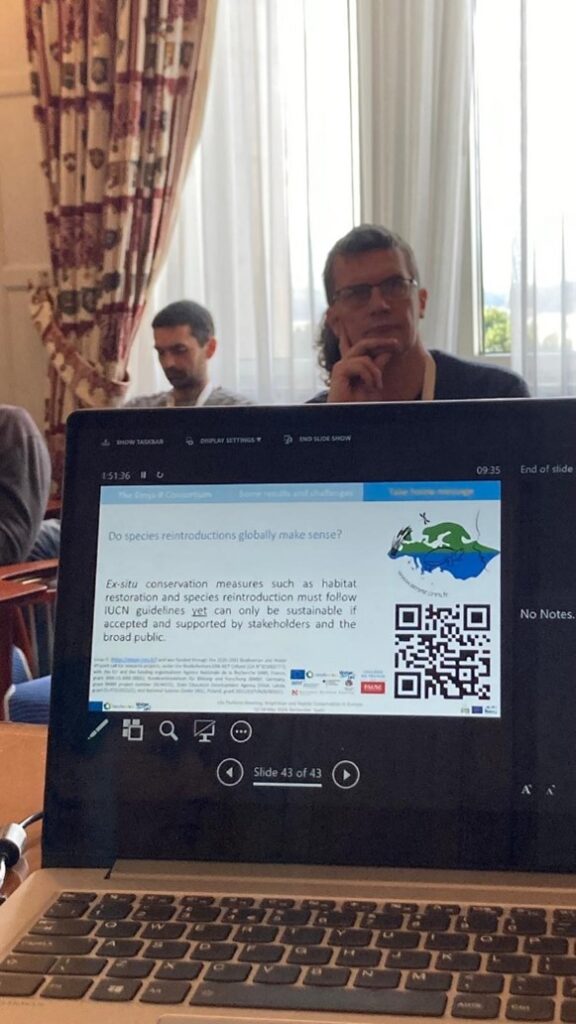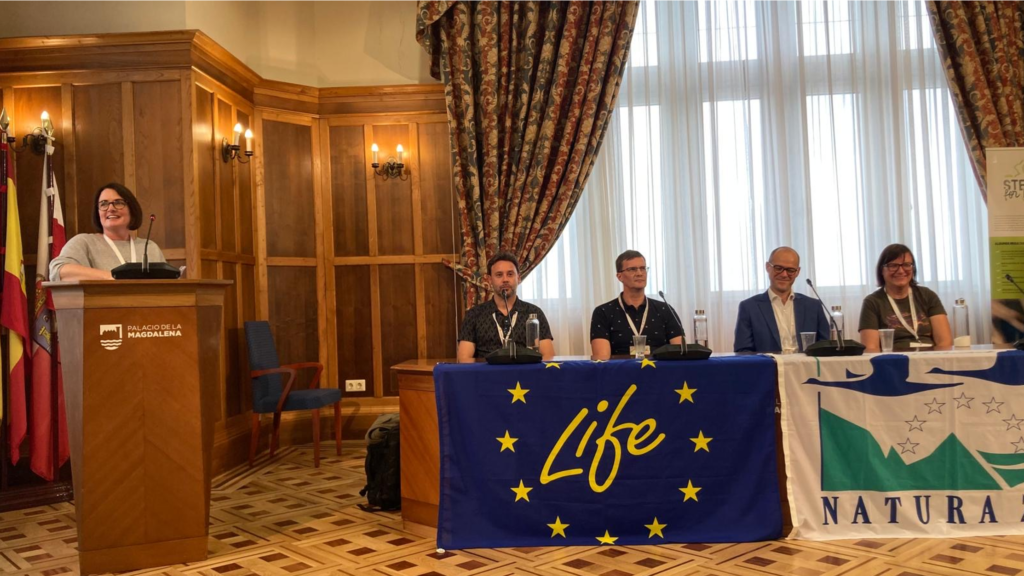Project represented at the "Amphibian and Reptile Conservation (ARC) Challenges and Opportunities in Europe" Conference
From May 22-24, 2024, Andris Čeirāns, an amphibian and reptile expert from the LIFE for Species project, attended the LIFE project platform conference titled "Amphibian and Reptile Conservation (ARC) Challenges and Opportunities in Europe." The event, organized by the Steps for LIFE project, took place in Santander, Spain. The conference attracted over 50 participants from nearly 30 LIFE and other EU program projects, as well as representatives from various stakeholders such as the European Commission, IUCN, WWF, ARC TRUST UK, and others.
The event aimed to facilitate the exchange of experiences regarding methods and monitoring techniques used in amphibian and reptile conservation. A. Čeirāns participated in the legislative and policy framework working group session as a keynote speaker, delivering an oral presentation on the protection of threatened herpetofauna in Latvia. His presentation emphasized IUCN-based taxon evaluations and criteria for a provisional list of protected species ("The Protection of Threatened Herpetofauna in Latvia, with an emphasis IUCN-based taxa evaluations and proposals for the protected species list criteria"). Additionally, the conference provided opportunities to engage in discussions within other working groups focused on the impact of climate change on protected areas, control of invasive amphibian and reptile species, and mitigation of anthropogenic impacts.


Key Conclusions and Insights:
- Similar Conservation Methods: In Latvia, similar methods for amphibian and reptile conservation are used as in other parts of Europe.
- Common Challenges: Europe faces common challenges in amphibian and reptile conservation related to land ownership, long-term sustainability of project outcomes, insufficient financial resources, among others.
- Species Status: Although commonly found amphibian and reptile species in Latvia are in relatively good condition compared to many Western European countries, less attention is given to particularly threatened species.
- Adoption of IUCN Criteria: While Latvia lags in using IUCN criteria for developing its lists of protected species, there are plans to introduce a new flexible approach for adapting the protected species list.
- Effective Communication: Latvia has good communication and feedback between experts and state nature protection agencies.

